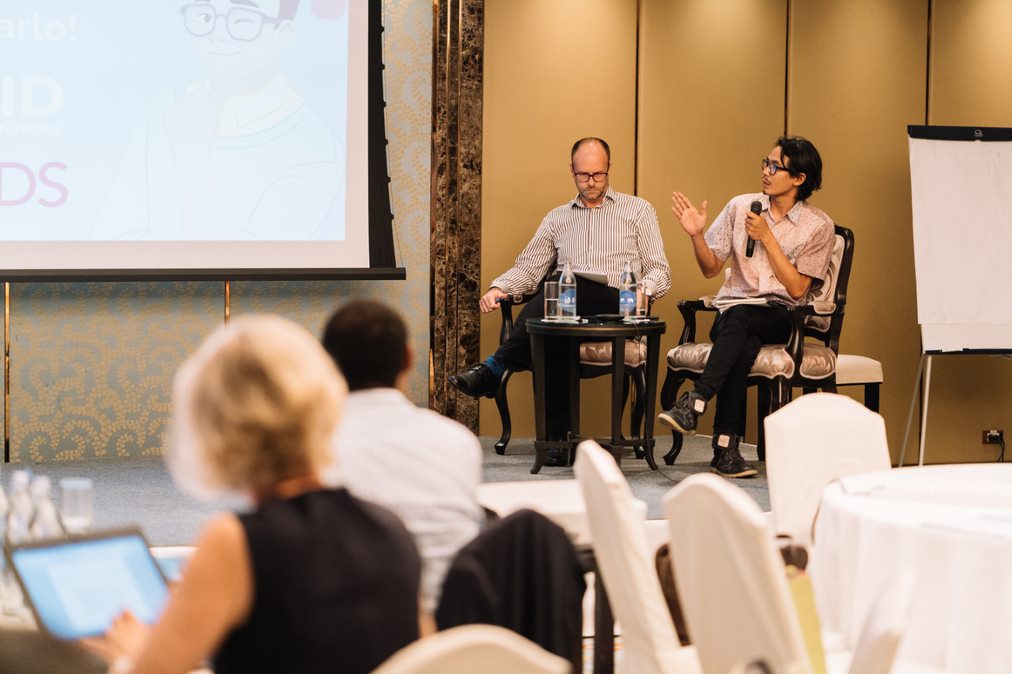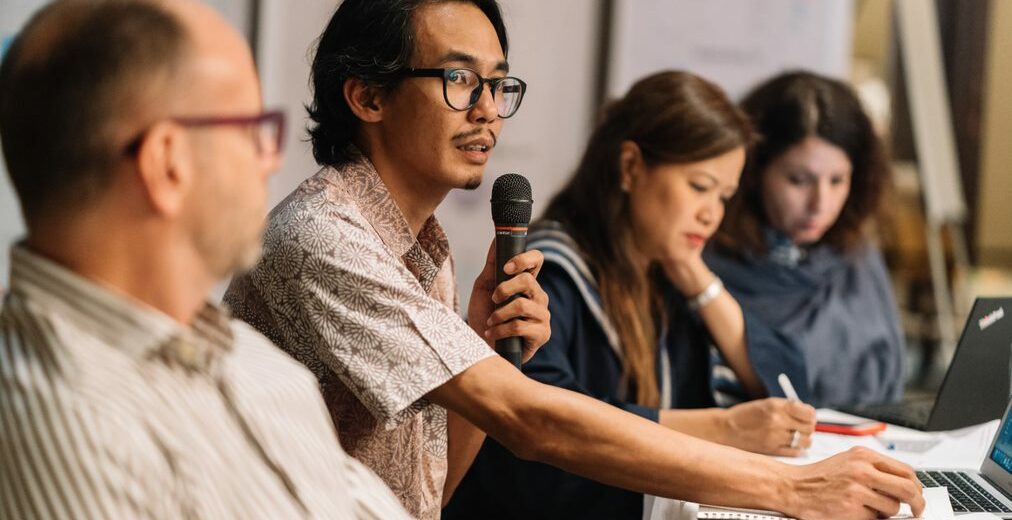From April 29 to May 1, I had the opportunity to attend the UNAIDS Asia Pacific Regional Management Meeting in Bangkok, Thailand. The meeting was attended by the Senior Management Team from Geneva, country directors, and national staff from the region.
As NGO Delegate from Asia-Pacific, I spoke in the panel, “Programming in Asia and the Pacific – Putting us in the Frame,” along with other speakers from regional key population networks. I also participated in a second panel on “Harnessing social media to promote HIV prevention and increase the uptake of HIV services.”
Some of my key messages and interventions during the discussion and throughout the meeting were as follows:
The Asia and the Pacific Region requires attention
The Asia and the Pacific region requires political and global attention to influence changes, especially where the global dialogue remains largely focused on Africa. UNAIDS leadership needs to be stronger and bolder, and it is expected that the recent appointment of the Deputy Executive Director for Programmes can influence the changes.
Data Quality
Data quality and availability are still inadequate and/or outdated. This includes a lack of data on prisoners and an understanding of issues around other priority populations, including migrants and people on the move, young people, and indigenous people.
Community-led Responses
As agreed in the 2016 Political Declaration on HIV/AIDS, Member States should invest no less than 30% on community-led services and 6% on social enabling activities of the total AIDS expenditure. The current reporting mechanisms, i.e. the Global AIDS Monitoring and National AIDS Spending Assessment – do not provide enough information to understand how much investment is made in community-led services.
Harm Reduction
Harm reduction services have been stagnant, and in some countries, funding has dropped significantly, including closure of HR services. Heroin is coming back in Indonesia with a low price, and we currently have a major problem with stock-outs of needles and syringes. I am particularly concerned with the increase of (potential) overdose cases – where Naloxone is not available.
90-90-90
We need to learn from countries like Cambodia who stated they achieved the 90-90-90 targets, whether they have become a victim of their own achievement. Donors are moving away, and the government is not ready to fully invest in the HIV response. There are also issues around other health priorities that require more investment, as well as addressing corruption. I also highlighted funding for civil society and the risk of not having community advocacy and activism through social contracting.
Punitive Laws
There are real issues of human rights violations that we have not addressed. This includes mass incarceration of people who use drugs and extrajudicial killings that are happening in several countries, which may be influenced directly or indirectly by Philippine President Rodrigo Duterte’s punitive war on drugs. The mass incarceration in Cambodia following Duterte’s visit in 2018 or Sri Lanka praising the iron fist approach need to be urgently addressed.
UBRAF
I expressed my concern that many of the processes currently happening in Geneva are not communicated well to UNAIDS country offices. It is very important that countries’ needs inform global initiatives and exercises and, therefore, provide impactful support and benefits to the national response.
Communication and Innovation
Key Populations have moved into virtual spaces. It is considered a safer space for many people who experience marginalization and criminalization. UNAIDS needs to be better at using advanced technology and addressing the needs of Key Populations in virtual spaces and to really maximize the role of the Office of Innovation.
Community Engagement
The RMM also engaged with the communities and key populations that covered important areas such as Meeting Our Commitment, Universal Health Coverage, Game Changers and Use of Social Media.

UNAIDS is still a best practice in bringing up the voices of the community, and there is space for working differently, especially in the context of the UN Reform. One lesson that I have learned from working with UNAIDS in Indonesia is through the engagement of community representatives at the Joint Team of UN Cosponsors as part of the Country Envelope engagement process and to help shape and design the implementation. This also enables the community to have further influence and voice in other UN Cosponsors, not just in UNAIDS.
